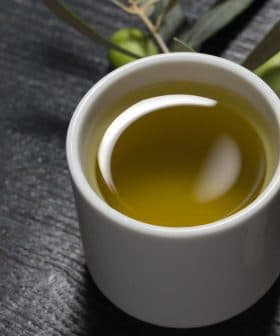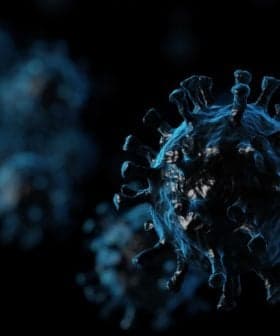Frying Vegetables in Extra Virgin Olive Oil Recommended for Men With Prostate Cancer
Daily consumption of extra virgin olive oil can increase the absorption of compounds with anticancer properties.
A pilot study recommends adding extra virgin olive oil to the diets of men with prostate cancer, as it helps with weight loss and increases the absorption of compounds with anticancer properties. The study found that including extra virgin olive oil in a plant-based diet produced similar weight loss results and better health outcomes than the diet recommended by the Prostate Cancer Foundation.
A new pilot study recommends adding extra virgin olive oil to the diets of men with prostate cancer.
The study found that adding extra virgin olive oil to the plant-based diet recommended by the Prostate Cancer Foundation (PCF), produced similar weight loss results as well as helped to increase the absorption of compounds with anticancer properties.
Effective dietary advice for decreasing prostate cancer risk and progression should include healthy fat.
For men who have low-risk prostate cancer, the PCF recommends weight loss as a way of reducing the risk of cancer recurrence and metastasis.
“Being overweight is the greatest lifestyle risk factor for a poor prognosis,” said Mary Flynn, the lead researcher on the study.
See Also:Olive Oil Health Benefits
The PCF also recommends fruits and vegetables that are high in carotenoid content and glucosinolate, natural compounds with strong cancer protection traits. However, the foundation’s dietary recommendations say nothing about adding extra virgin olive oil to supplement fruit and vegetable intake.
Carotenoids require fat in order to be properly absorbed, while water-based preparations lose some of the glucosinolates in vegetables such as broccoli and kale. Researchers conducting the study suggested cooking these vegetables in extra virgin olive oil as a healthy alternative.
“Effective dietary advice for decreasing prostate cancer risk and progression should include healthy fat to prepare the cancer protective vegetables to maximize absorption of carotenoids and possibly the glucosinolates,” Flynn wrote in the study.
The study also noted that men in Greece and Spain, many of whom traditionally consume an olive oil enriched Mediterranean diet, have low rates of prostate cancer.
“Studies show that the health benefits (from extra virgin olive oil consumption) start at two tablespoons per day,” Flynn said. “I selected three tablespoons as I thought it was a reasonable amount to ask the participants to consume each day and would be likely to show benefit.”
The study, which was conducted by the Miriam Hospital Department of Medicine in Providence, Rhode Island, asked some participants to follow a plant-based olive oil diet and others to follow the PCF diet for eight weeks. At the end of the eight weeks, the participants switched diets for another eight weeks.
After consuming both diets, participants were asked to select one of the diets and continue to consume it for an additional six months.
The results of the study found that weight loss for both diets was about the same. However, the diet that included extra virgin olive oil resulted in lower levels of insulin and fasting glucose than the foundation’s diet.
“There is a positive relationship between fasting insulin to prostate cancer development and both blood glucose and insulin resistance are positively related to cancer mortality,” Flynn wrote in the study. “Daily consumption of extra virgin olive oil may help improve survivorship for cancer.”
For the purposes of the study, Flynn did not ask how participants consumed the extra virgin olive oil. However, she said other studies had shown evidence that cooking vegetables into extra virgin olive oil may make them healthier.
“This study… did show that cooking the food into the olive oil was more beneficial than just pouring olive oil on the food,” she said. “Also, cooking vegetables in olive oil has been shown to increase the phenol content of the vegetables compared to cooking them in water, so that would mean cooking vegetables into olive oil would make them healthier.”
Seventeen participants completed the study and Flynn said she believes the logical next steps would be to repeat the study with a larger group of participants.
“There were some trends that may become more significant, should more men be studied,” she said. “I think that there also should be more research investigating the role of extra virgin olive oil in cancer prevention and treatment as I think there is great potential for benefit.”









